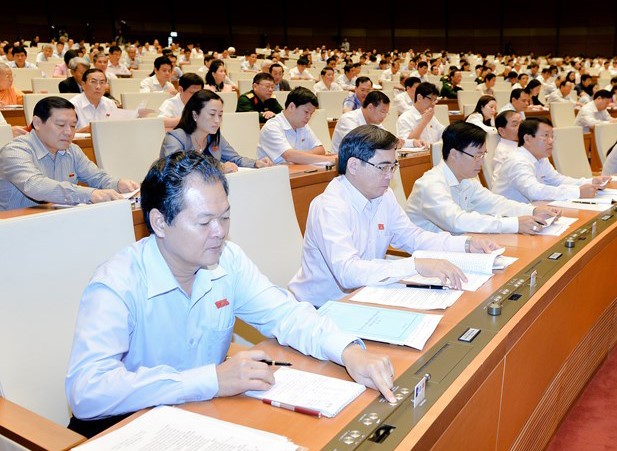Q&A session: democracy, accountability
Van Huyen -
(VOVWORLD) -The Q&A session is an important supervisory channel of the National Assembly. In the past 3 days, National Assembly deputies and cabinet members had an open and democratic discussion.
 A National Assembly plenary session A National Assembly plenary session |
The Ministers of Agriculture and Rural Development; Culture, Sports and Tourism; Health; and Planning and Investment were the primary respondents for this Q&A session. Four Deputy Prime Ministers, the Minister of Transport, the Minister of Industry and Trade, the Head of the Ethnicity Committee, and the General Director of Vietnam Social Insurance contributed elaboration on issues related to their sectors.
Straightforward, frank discussion
Deputies frankly and openly shared their opinions and questions with the Ministers. Although the National Assembly recently increased the duration of the Q&A session, many questions did not get answered due to lack of time.
Duong Trung Quoc, a deputy for Dong Nai province, said: “This was the 2nd Q&A session of the 14th National Assembly. Two thirds of the deputies are new but they showed a sense of responsibility in their questions. The Q&A session was long and well organized. The public paid close attention to the Ministers’ answers and observed the performance of the elected deputies.”
In the Q&A session, deputies ask in-depth questions so the Ministers can elaborate the causes of the issues and suggest solutions. The deputies then discuss the answers to clarify the facts. Nguyen Van Hien, a deputy for Lam Dong province, said: “The deputies and Ministers have an opportunity to analyze the issues and find better solutions for economic management.”
Responsible and accountable manner
During the 3-day Q&A session, the Ministers and Deputy Prime Ministers took responsibility for the issues under their authority and promised to make changes. National Assembly Chairwoman Nguyen Thi Kim Ngan spoke at the closing ceremony: “The National Assembly acknowledged the sense of responsibility of the cabinet members. The government has strived to promptly resolve problems and shortcomings to stabilize and promote the economy and improve people’s living conditions.”
Van Huyen